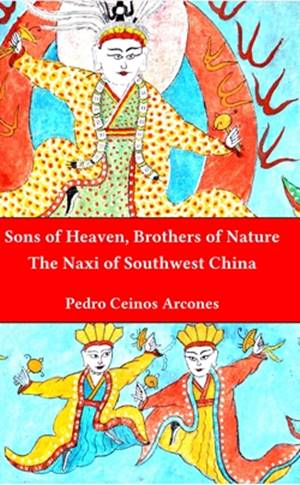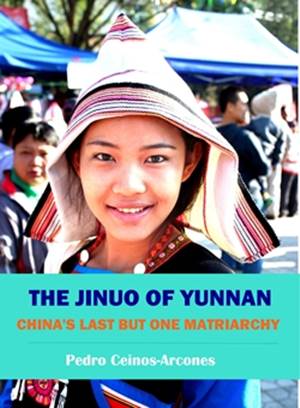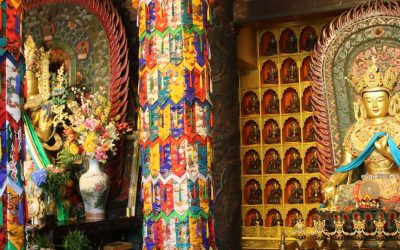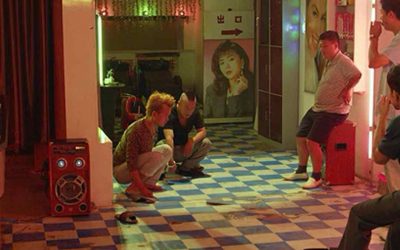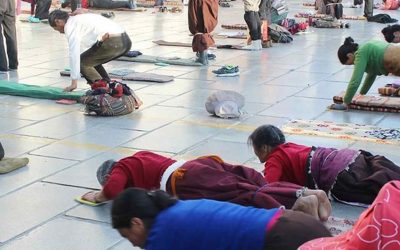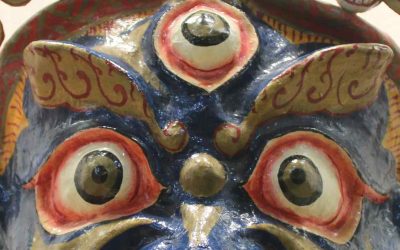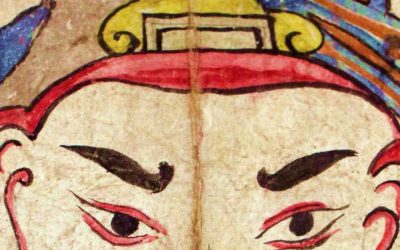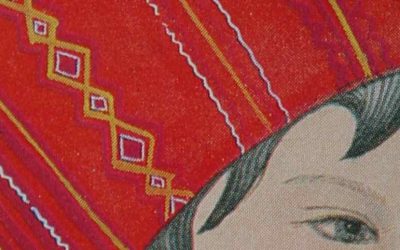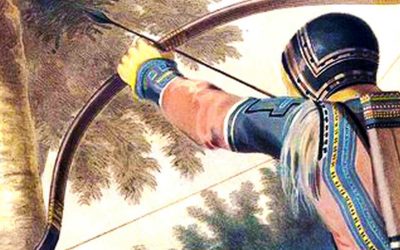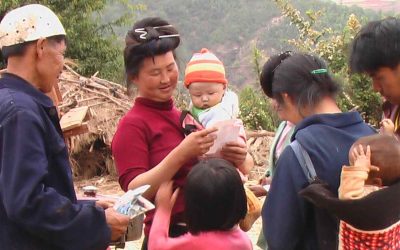Now is the time to ask him something about Taoism, I decided, and I poured out my questions. He looked up at me with his innocent, childish eyes, his smile gentle but, I thought, slightly ironical.
‘Take time, observe and learn,’ he said simply. ‘Words spoken in haste will not stick; a cup of water splashed into a parched field will do it no good. It is only a slow and gentle rain that will saturate the soil and produce life.’ He became silent ready to resume his work.
His rebuke abashed me. I saw what he meant. He probably thought I was an idle tourist, or worse, a young writer, who wanted to learn something about Taoism in an hour or so, and then write a smart article, boasting of the mysteries revealed to him. Seeing my obvious confusion, the old man relented. His face was all smiles now, but his eyes became thoughtful.
‘If you want to learn about the Eternal Tao, do not be casual and in a hurry. Don’t glean too much from too many books, for each book is full of opinions, prejudices and corruptions.
Read only one book and only one—our Old Master’s Taoteking, and then try to understand it, not by juggling the words and meanings, but intuitively, through your heart and spirit. Don’t ask too many questions, but patiently watch what we Taoists do, and perceive the hidden motives of our actions, and not that which is only for display.
Do not be guided so much by your intellect as by faith, love and your heart, which is another name for understanding and compassion. What you need is wisdom, and not knowledge; for if one has wisdom, knowledge will come naturally. Always remember that the Eternal Tao is Infinite Wisdom, Infinite Love and Infinite Simplicity.’ And with this the old man took up his pickaxe and resumed his hoeing of the bush.
From: Peter Goullart. The monastery of Jade Mountain. 1961
More posts on Chinese culture
The Filial Peasant Girl – A Buddhist Miracle Tale
The Filial Peasant Girl - A Buddhist Miracle Tale With the arrival of Buddhism in China, in addition to translating the main canonical scriptures, other more popular religious literature began to emerge, which by means of some tales narrating either the benefits of...
Shock Wave 2- An entertaining action movie
Shock Wave 2- An entertaining action movie In short: A nice movie, with an original script, plenty of surprises, the right dose of love, and a slightly exaggerated dose of violence, but nothing excessive for what is fashionable nowadays. The year 2020 seems to have...
Hong Ying- An Art of Love without art and without love
Hong Ying- An Art of Love without art and without love In Brief: A scandalous novel that fails to shock, and an art of love that is conspicuous by its absence. Already from the beginning, we know that this is a love story without a future because the novel begins with...
Black Coal, Thin Ice, by Diao Yinan
Black Coal, Thin Ice, by Diao Yinan In short: a film narrated in a gray and sometimes sordid atmosphere, in a dark winter, of climate and spirit, which presents a mystery in which the viewer is gradually seduced. In an eminently mining region, human limbs begin to...
Xian, the ancient imperial capital
Xian, the ancient imperial capital In short: The ancient city inside the city wall retains a fascinating atmosphere. Its great monuments on the outskirts, such as the Terracotta Warriors, are among China's favorite attractions. Xian is undoubtedly one of the most...
Xin Ran – Sky Burial: An Epic Love Story of Tibet
Xin Ran - Sky Burial: An Epic Love Story of Tibet In Brief: A work full of exoticism that describes some interesting customs of the Tibetan nomads, but fails to convey emotions to the reader. Sky Burial: An Epic Love Story of Tibet is a novel set in the late 1950s. A...
More posts on China ethnic groups
Ritual prostrations of Tibetan pilgrims
Ritual prostrations of Tibetan pilgrims The end of the path of any pilgrimage is a temple or mountain considered the abode of the gods. Reaching it is the culmination of the journey. At that moment the pilgrims, in spiritual bliss, pay homage to the gods in two ways:...
Mask of the Protector Palden Lhamo
Mask of the Protector Palden Lhamo Palden Lhamo is one of the main protector deities of Tibetan Buddhism. Among her many roles, she is the special protector of the city of Lhasa, the Gelugpa order of Tibetan Buddhism, and the Dalai Lamas of Tibet. She was invited to...
«Dujie» (Initiation Rite) Masks of the Yao people
"Dujie" (Initiation Rite) Masks of the Yao people Popular among the Yao people in Wenshan and Honghe Prefectures, the Dujie masks are used for the ceremonies of the boys' rites of passage. The ceremony, performed for boys that are about fourteen years...
The headdress of the Jingpo women
The headdress of the Jingpo women The clothing style of the Jingpo people is rough and bold, It is possible that it reflects that past time when they were the masters of the frontier mountains, and caravans had to pay a tax to pass through their lands. Men of the...
Pictographic writing among the Evenki
Pictographic writing among the Evenki In Chi Zijian’s novel The Last Quarter of the Moon (English translation by Bruce Humes) there is a short story describing the creation of pictographs to write the Evenki language. “Shiban had two great loves: creating Evenki...
The Flowery Miao in Zhaotong
The Flowery Miao in Zhaotong As depicted by E. G. KEMP in The Face of China. New York. 1909. The prefectural town of Zhaotong was reached after passing through a dull plain, across which a piercing wind was blowing, which is characteristic of this district. It is an...


